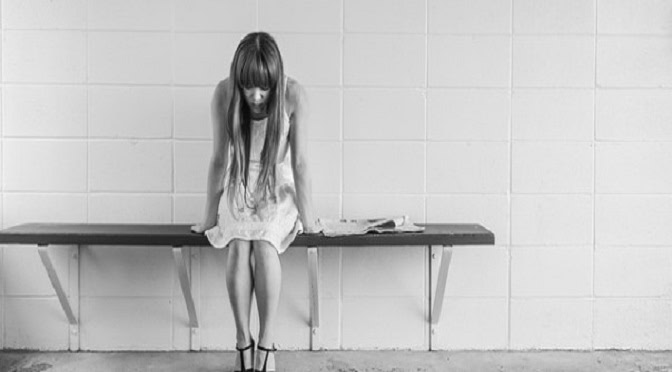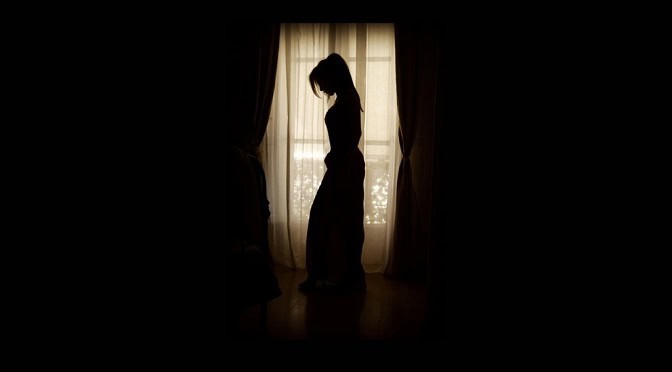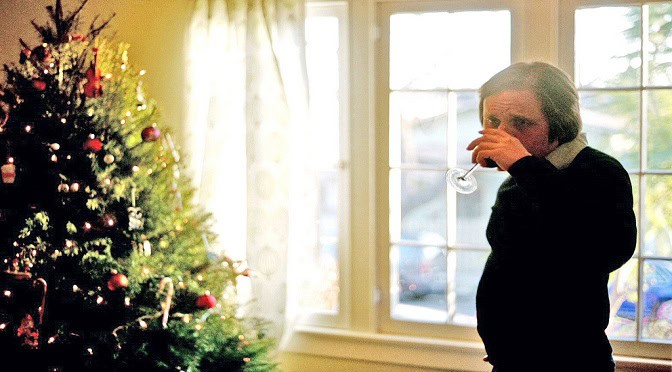Why Won’t Men Go To Therapy?
Why won’t men go to therapy, even though the research shows that men benefit from talk therapy just as much as women?
Five years ago, Jack Brown’s wife questioned his commitment as a husband and demanded he see a counselor with her. Brown (not his real name) grudgingly obliged. He went. Once.
“The idea of paying some guy money to massage your issues,” said Brown, a Chicago-area attorney in his early 50s, “is ridiculous.”
In fact, the counselor, Brown and his wife talked and found plenty of issues to massage. His 30-minute assessment suggested that Brown was carrying a truckload of psychological baggage that needed unpacking. He recommended weekly counseling sessions.
Brown didn’t buy it. Like millions of other American men, he didn’t want to pay good money for simply talking about his feelings.
“My marriage is a mess, and all my wife wants to do is drag someone else into it?” the Yale Law School grad explained. “Talking with a counselor is going to help things how? Some things … are what they are.”
Brown may have been reluctant. But studies show that men who equate seeking assistance as a sign of weakness, of not being able to handle their own problems, experience less happy relationships with their significant others, higher rates of major illnesses, and earlier death.
The emotional benefits of reaching out for help are well documented and more men are trying it, although they are still a small minority. On the downside, while the number of men seeking help has increased, the number of men who chose therapy has actually decreased while those who popped prescription pills to tackle their emotional ills has increased.
Depression can be deadly
Pills or therapy or both, there is no denying the consequence of untreated extreme depression – suicide has become the 10th leading cause of death in the U.S. Women are diagnosed more often with depression and make far more suicide attempts yet men account for 8 out of every 10 suicides in the U.S.
Anne Cleary published a study in the journal, Social Science & Medicine, that showed men who survived suicide attempts were reluctant to tell anyone the significant emotional pain that had led to their suicide attempts.
They “used alcohol and drugs to cope,” Cleary wrote. “They opted for suicide rather than disclose their distress and seek help.”
[fusion_builder_container hundred_percent=”yes” overflow=”visible”][fusion_builder_row][fusion_builder_column type=”1_1″ background_position=”left top” background_color=”” border_size=”” border_color=”” border_style=”solid” spacing=”yes” background_image=”” background_repeat=”no-repeat” padding=”” margin_top=”0px” margin_bottom=”0px” class=”” id=”” animation_type=”” animation_speed=”0.3″ animation_direction=”left” hide_on_mobile=”no” center_content=”no” min_height=”none”]

Frank Ferrante, a professional speaker living in San Francisco, knows how it feels. At his lowest point in his life, Ferrante, high on drugs, jumped onto the tracks of an oncoming subway train. But he mistimed the jump and someone pulled him to safety.
Eventually, he found his way to therapy. But every breakthrough had a matching breakdown. “I don’t think that the pain you cause other people can be separated from the pain you incur yourself,” he said. “It’s been a slow and arduous process of clearing stuff up,” (In 2010, a documentary, May I Be Frank, was made about Ferrante’s experiences.)
Suicide rates among men ages 50 to 59 sharply increased between 1999 and 2005, a grim trend which may well have been caused by the nation’s ongoing economic recession, in which twice as many men as women lost their jobs.
The so-called “man-cession” hit men in the prime of their work years very hard, with nearly one in five men ages 25 to 54 left jobless.
The experts worry about the recession’s toll on men who may have defined their self-worth through their roles as breadwinners of their families, only to lose those roles following corporate downsizing and layoffs. Have men coped? Some coped by drowning their sorrows. Sales of alcohol rose every year during the recession.
The NIH, the federal National Institutes of Mental Health posted an online public-service campaign, “Real Men. Real Depression” which targeted those in depression to realize, “It takes courage to ask for help.” Using a firefighter, a police officer, and other men who’ve struggled with depression, it showed there is help —but only if they ask for it.
Men don’t like asking for help
It’s sad, but often it’s true: many men would rather be lost than ask for directions; men don’t like asking for help.

“We’re self-reliant. We want to do it ourselves,” says Jay Wade, president of the Society for the Psychological Study of Men and Masculinity. When men are faced with emotional pain, “they suck it up, move on, bury it, repress it,” according to Wade. “It doesn’t go away, obviously.”
Why won’t men go to therapy? Studies show that men are more reluctant to visit a doctor of any kind, even when they’re having chest pain or experiencing other life-threatening symptoms. This in spite of the fact that men die in greater numbers from 12 of the 15 most common causes of death.
Health-care avoidance is most pronounced among “macho men,” according to a study by Rutgers University sociologists Kristen W. Springer and Dawne M. Mouzon. The study showed men who endorsed statements like, “A man should always try to project an air of confidence even if he really doesn’t feel confident inside” and, “When a man is feeling pain, he shouldn’t let it show,” were also less healthy.
If “macho” men are unwilling to expose their weakness in a doctor’s office, they’re even more unlikely and unwilling to expose their emotional weaknesses to counselors, according to Wade, the professor at the head of the masculinity division at the American Psychological Association.
Not every man needs to see a therapist, to be fair. Many people adjust well on their own, drawing on guidance from family and trusted friends and inner resiliency. But the stresses of ordinary life can sometimes threaten to overwhelm an individual’s coping and support systems. Some men try to “numb themselves” by throwing themselves into their work or using alcohol and drugs as avenues of escape.
For many men, it’s a wife or girlfriend who finally says, “Go see somebody or I’m leaving you.”
Forcing men to sit through counseling sessions however can be a minefield, mental health experts say. Some men become resentful and even less communicative if they are forced to talk, even if was “for their own good.”
How do men become these stoic impenetrable walls?
Men aren’t born as strong, silent types, according to Ronald Levant, editor of the academic journal Psychology of Men & Masculinity. “Decades of research show that sex differences between men and women and girls and boys are very small.”

Men and women are almost equally reluctant to share feelings.” What differs is the way most boys are socialized to act tough—and suffer when they don’t,” says Levant.
Male babies actually start out more emotionally expressive than females. Soon they pick up on clear messages, especially from parents and grandparents that boys are strong, that they don’t cry and never complain no matter what. The result? By age 2, boys are less verbally expressive than girls.
By fourth grade, Levant says, boys are more reluctant to ask for help in resolving conflicts with peers. And these learned behaviors persist into adulthood.
Counselors today, are more likely to be women. This can be both an advantage and a disadvantage for male patients.
Men may regard a woman as more nurturing, empathetic, and less threatening and may ultimately be more willing to open up. On the other hand, female counselors run the risk of alienating men by trying to counsel them, even though subtly, to be like them.
Counselors are well advised to start their counseling sessions by commending male clients for the courage it took just to show up. Then they should work to cultivate the image of therapist-as-partner. The approach feels less like, “How do you feel?” and more like a coach paid to help you with your game.
For some men, sessions with a female psychologist are sometimes too distracting. From thoughts of wanting a relationship with the female counselor to wondering about their personal lives, they find that men counselors are better suited to the task at hand.
Counselors envision a day when even the most macho men will sit down with skilled counselors, and discuss their emotional burdens. The stigma of therapy among young men is changing. “They’re less judgmental about guys that go for counseling,” Rabinowitz, co-author of Deepening Psychotherapy With Men says. “I believe that 9/11 was a big turning point for this generation. Men were seen crying in reaction to the carnage in New York.”
“Once guys have made it into counseling, they like it,” says Rabinowitz. “When it is re-framed as a sign of strength to seek help … most men find talking and processing their experience therapeutic.”
This information is provided to supplement the care provided by your physician. It is neither intended nor implied to be a substitute for professional medical advice. CALL YOUR HEALTHCARE PROVIDER IMMEDIATELY IF YOU THINK YOU MAY HAVE A MEDICAL EMERGENCY. Always seek the advice of your physician or other qualified health provider prior to starting any new treatment or with any questions you may have regarding a medical condition.[/fusion_builder_column][/fusion_builder_row][/fusion_builder_container]




